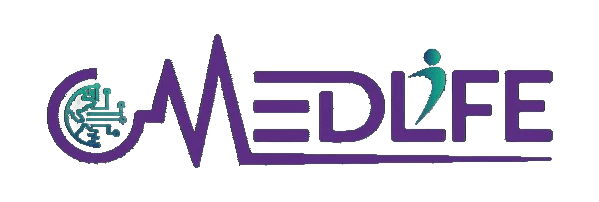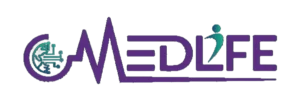Mental health billing keeps getting harder. Updated CPT codes, stricter documentation rules and changing payer policies mean revenue optimization isn’t just about seeing more patients anymore. It’s about getting paid correctly for the work you’re already doing.
We’ve watched specialized support transform finances for practices that were leaving money on the table without realizing it. Our mental health billing services help clinics capture revenue they’re already earning but struggling to collect.
This article delves deeper into how outsourced support actually addresses revenue issues in mental health practices.
Need Help with Mental Health Billing Services?
Book a free consultation to simplify your billing, speed up reimbursements, and cut down denials.
TALK TO AN EXPERTThe Revenue Leak Problem in Mental Health Practices
Mental health billing is just complex. Psychotherapy codes need exact time documentation. Diagnostic evaluations require specific notes. Crisis intervention services get denied when paired incorrectly with other procedures.
Research from the American Psychological Association shows providers face denial rates of 18 to 22 percent, way higher than the 10 percent average in other specialties. That gap represents real money sitting unpaid or written off.
Common issues? Weak documentation for medical necessity. Wrong modifiers (especially 25, 59 and 95). Incorrect place-of-service codes for telehealth. Missed opportunities to charge for health behavior assessments.
When front desk staff juggle claims alongside scheduling and patient calls, details often slip through the cracks.
Why Outsourcing Works Better in 2025
Specialized companies bring expertise your general staff can’t match. They track payer changes without pulling your team from patient care. They know which insurers need pre-authorization and which have unique claim portals.
Understanding who is eligible to bill for mental health services matters too since credentialing differs between LCSWs, psychologists, psychiatrists and LPCs.
Key Updates Affecting Mental Health Billing in 2025:
- Medicare now requires explicit telehealth documentation including technology used and recorded patient consent.
- Major commercial payers verify eligibility in real-time before accepting therapy claims over 60 minutes.
- Updated collaborative care codes (99492-99494) let you charge for psychiatric consultations in primary care settings.
- Stricter modifier 95 enforcement means virtual visit claims need proper platform documentation.
Specialized teams catch these changes before denials hit. They also handle denial management, which in-house staff rarely have time for.
Understanding Your Most Common CPT Codes
CPT codes for mental health billing drive your revenue, but using them right makes the difference. Here’s what you need to know:
| CPT Code | Service Description | Key 2025 Consideration |
| 90791 | Psychiatric diagnostic evaluation | Needs full mental status exam and treatment plan documented |
| 90832 | Psychotherapy, 30 minutes | Document start and stop times clearly |
| 90834 | Psychotherapy, 45 minutes | Most common option; needs 38+ minutes to justify |
| 90837 | Psychotherapy, 60 minutes | Requires 53+ minutes documented |
| 90839 | Psychotherapy for crisis, first 60 minutes | Gets denied without clear medical necessity |
| 99354 | Prolonged service, first hour | Adds income when paired correctly with 90837 |
One undercoded session daily costs a solo practitioner roughly $8,000 yearly. Many practices keep a billing cheat sheet posted as a quick reminder of time requirements and modifiers.
How Telehealth Changes the Billing Landscape
The effect of telehealth on mental health billing continues to grow as rules keep shifting. Some insurers cover virtual care for all psychotherapy codes. Others restrict it to established patients only.
Place-of-service code 02 must be used correctly. Modifier 95 needs to appear for most commercial payers.
The real challenge is documentation. Insurers audit virtual visit claims more to verify they meet in-person standards. Your notes need the same clinical detail, time tracking and treatment planning whether the session was in your office or on video.
Practical Coding Tips That Protect Revenue
Getting paid fairly means accuracy and detail. Learning how to bill for mental health services properly requires understanding both technical requirements and clinical documentation.
Essential Coding Practices for 2025:
- Record exact start and stop times for timed codes to defend against audits.
- Apply modifier 25 correctly but don’t overuse it, which triggers automatic reviews.
- Charge crisis codes only when documentation supports true emergency intervention beyond routine therapy.
- Verify telehealth coverage before appointments since not all plans cover every code virtually.
- Submit claims within 48 hours to reduce aging receivables and catch eligibility issues fast.
These aren’t complicated, but consistent execution needs dedicated focus that busy clinicians lack.
The Real Financial Impact of Better Billing
When processes improve, results show fast. Clean claim rates jump from 70 percent to 95 percent or higher. Days in receivables drop from 45-60 to 25-30. Denials fall below 5 percent instead of hovering around 20 percent.
For a small practice seeing 20 patients daily, fixing inefficiencies typically recovers $3,000 to $7,000 monthly. Not from seeing more patients or raising rates. Just from collecting what you’ve already earned.
Moving Forward with Your Billing
You probably already know your billing could work better. Most practices do. The real question is whether it makes sense to keep struggling with it internally when you could hand it off to people who do this all day, every day.
You became a therapist to help people, not to argue with insurance companies about modifier codes. If that sounds familiar and you’re tired of watching money slip away month after month, it might be time for a different approach.
Medlife MBS handles billing for mental health practices so you can get back to the work that actually matters to you.


